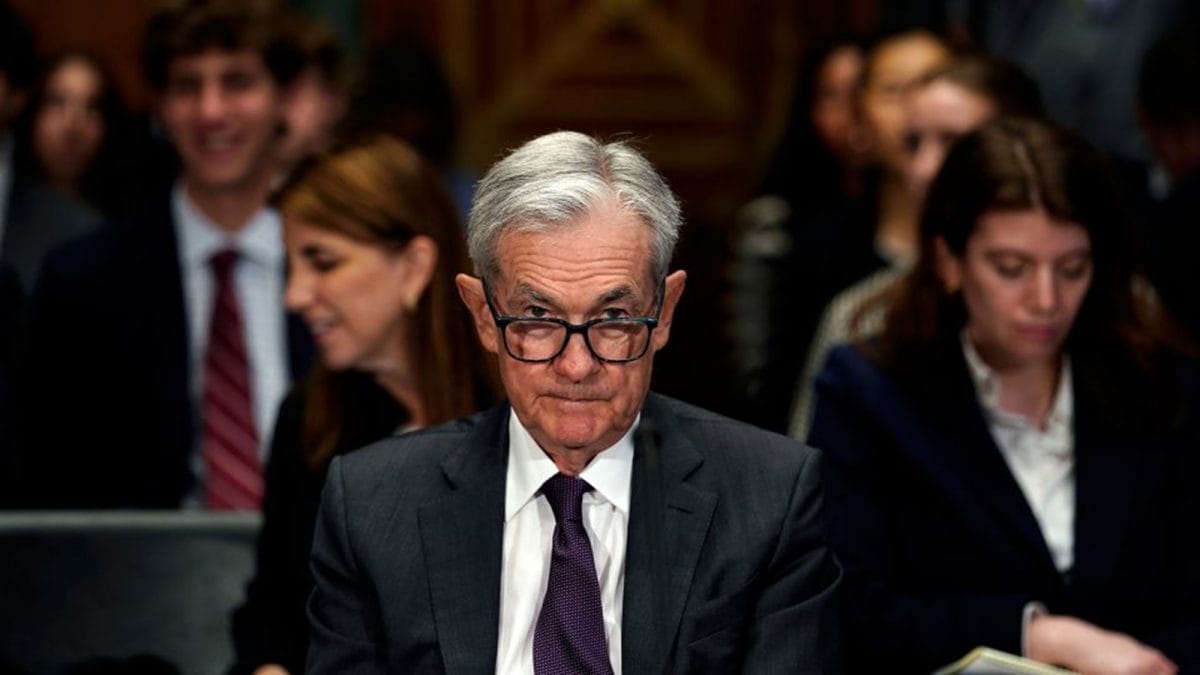Last Updated:October 03, 2025, 11:54 IST
For Britain, the synagogue attack is a wake-up call. Starmer’s measures address symptoms, but root causes demand bolder action. India, with its own diverse fabric, watches closely

The UK reported 3,528 anti-semitism incidents in 2024—a 147% jump from 2022 and the second-highest annual tally ever. From January to June 2025, 1,521 acts were logged. (Getty Images)
A violent attack on a Manchester synagogue during Yom Kippur prayers on October 2 sent shockwaves through the British Jewish community, raising urgent questions about rising anti-Semitism.
The assault, which left two people dead and four injured, unfolded on the holiest day in the Jewish calendar, amplifying fears in a nation where anti-Semitic incidents have more than doubled since the Israel-Gaza war began in October 2023.
With Britain’s 292,000 Jews facing a surge in vandalism, assaults, and online abuse, the attack has put a spotlight on the troubling trend. Is this a sign of escalating hatred, or an outlier in a society grappling with global tensions? Let us decode the Manchester attack, trace the history of anti-Semitism in the UK, and examine government responses.
The Manchester Attack: A Timeline of Terror
At 7.45 pm on October 2, as worshippers at Heaton Park Hebrew Congregation in Manchester gathered for Kol Nidre—the opening prayers of Yom Kippur—a silver sedan rammed into the synagogue’s entrance, shattering glass doors reinforced since the Gaza war’s onset. The attacker, a 35-year-old local man with no prior criminal record, emerged brandishing a 12-inch kitchen knife and began stabbing congregants.
Two died: Esther Cohen, 68, who shielded her grandson, and David Levy, 42, a schoolteacher protecting his family. Four others—a rabbi’s assistant, two teenagers, and an elderly worshipper—suffered severe wounds and were hospitalised.
The assailant, shouting anti-Jewish slurs tied to the Israel-Hamas conflict, was subdued by police gunfire within 90 seconds, killed after wounding security guards. His car contained pamphlets decrying “Zionist aggression" and praising Hamas’s October 7, 2023, attack, which killed 1,139 Israelis.
Greater Manchester Police, labelling it a terrorist act, arrested three associates—two brothers and a cousin—suspected of aiding his online radicalisation. Raids across Manchester seized devices linked to extremist forums where the suspect had posted since the Gaza war escalated, killing over 65,000 Palestinians.
The synagogue, serving 500 families in one of Britain’s largest Jewish hubs, became a crime scene, its steps littered with bloodied prayer shawls. Community leaders moved survivors to a nearby hall, where trauma counsellors worked through the night.
The attack’s timing—on Yom Kippur, a day of fasting and atonement—underscored its brutality, marking it as the first direct assault on a UK synagogue in modern history.
The Surge In Anti-Semitism Incidents In The UK
The Manchester attack is part of a broader spike in anti-Semitic incidents since Hamas’s October 2023 assault on Israel. The British Community Security Trust (CST), which monitors Jewish safety, reported 3,528 incidents in 2024—a 147% jump from 2022 and the second-highest annual tally ever. From January to June 2025, 1,521 acts were logged, including 201 physical assaults, the worst on record for that period. These range from vandalism—swastikas and “Free Palestine" graffiti on synagogues—to online death threats and physical attacks like spitting or bottle-throwing.
London has seen a 400% rise in incidents since October 2023, with areas like Golders Green hit by firebombings and faeces smeared on Jewish nursery doors. Manchester’s 10,000-strong Jewish community reports a tripling of attacks, from egged homes to cars torched with “Zionist pig" slurs.
Surveys show 40% of British Jews now hide kippahs or Stars of David in public, up from 20% before 2023. Social media fuels the fire: Hashtags like #ZionistMediaControl garner millions of views, spreading conspiracies about Jewish influence. The Gaza war’s toll—65,000 Palestinian deaths, 2 million displaced—has polarised discourse, with some pro-Palestine protests veering into anti-Jewish rhetoric, blurring criticism of Israel with historic tropes.
The Manchester attack fits this pattern. Police investigations point to the assailant’s radicalisation via online forums blending Gaza war imagery with anti-Semitic memes. The CST’s post-attack advisory—lock synagogue doors, avoid gathering outside—reflects a community under siege, with schools drilling lockdowns and parents pulling children from Hebrew classes.
A Troubled History Of Anti-Semitism In Britain
Anti-Semitism in Britain stretches back centuries, a mix of acceptance and animosity. Jews arrived with William the Conqueror in 1066, serving as financiers until Edward I’s 1290 Edict of Expulsion, driven by blood libels and economic resentment, banished them for 366 years. Readmitted by Cromwell in 1656 for trade benefits, they faced lingering prejudice: 19th-century East End riots targeted Jewish immigrants with “no Jews" cries. The 1936 Battle of Cable Street saw 100,000 anti-fascists block Oswald Mosley’s British Union of Fascists, a stand against Nazi-inspired hatred.
World War II exposed contradictions: Britain interned 27,000 Jewish “enemy aliens" while fighting Hitler, and post-war quotas limited Holocaust survivor arrivals. The 1947 Colonial Office bombing, tied to Jewish extremists, fed scapegoating amid economic strain. Post-1967 Six-Day War, anti-Zionism often cloaked anti-Semitism, with Arab-Israeli conflicts sparking campus hate. The 1990s Stephen Lawrence case revealed institutional racism, including anti-Jewish strains. Post-9/11, Jews and Muslims faced shared xenophobia, but the Iraq and Lebanon wars revived synagogue vandalism and conspiracy spikes.
The Gaza war has reignited these tensions. Before October 2023, the CST logged 1,815 incidents, then a record. The 2024 surge—3,528 acts, 201 assaults—reflects imported Middle East rage, with “river to the sea" chants at protests interpreted by many Jews as calls for erasure. Online, QAnon-style “Jewish cabal" narratives proliferate, hitting younger Jews hardest, with 40% rethinking Zionism amid fear. Manchester’s attack, echoing 2019’s Poway synagogue shooting, marks a new low, reviving fears of historic pogroms.
What Is The Government’s Response?
Prime Minister Keir Starmer responded swiftly. Hours after the attack, he vowed to protect Jewish communities, deploying armed police to synagogues, schools, and centres like London’s JW3. Greater Manchester Police, treating the incident as terrorism, raided three homes, seizing devices tied to extremist networks. A £5 million emergency fund was added to the £70 million pledged in February 2024 for the Jewish security—guards, CCTV, alarms—covering 500 sites.
Starmer’s broader strategy builds on existing measures. The 2025 Hate Crime Bill mandates faster prosecutions, using the IHRA anti-Semitism definition to target Israel-related hate crossing into Jew-baiting. The Online Safety Act expands monitoring to curb hate speech, with platforms facing fines for failing to remove anti-Semitic content. Starmer’s September 2025 recognition of Palestine aimed to ease war-driven tensions, but it sparked far-right backlash, accusing Labour of “appeasing" extremists.
Critics highlight shortcomings. The surge began under the Conservatives, with incidents doubling in 2023, blamed on lax borders and unchecked social media. Pro-Palestine marches, drawing 300,000 in London, have led to arrests for incitement, but enforcement feels uneven—Jewish sites are fortified, yet Islamophobia spikes go unaddressed, risking minority alienation. The CST notes 6% of 2024 incidents involve “extreme violence," urging education and interfaith efforts beyond security. A rabbi’s post-attack plea — “security today, understanding tomorrow" — captures the gap.
What Are The Implications?
The Manchester attack highlights a broader crisis. Britain’s Jews, 0.4% of 67 million, face unprecedented fear: 40% hide their identity, synagogues lock doors, and schools mimic wartime drills. The Gaza war’s global fallout has left 65,000 dead, polarised protests, with anti-Zionism often slipping into anti-Semitism. Social media’s role is undeniable, amplifying conspiracies to millions.
Historically, Britain’s multiculturalism has been tested by such waves. Cable Street’s 1936 stand defeated fascists, but today’s threat is decentralised—online forums, lone actors. The Runnymede Trust warns that current protections, while robust, risk “unequal" perceptions, sidelining other minorities like Muslims facing parallel hate spikes.
For Britain, the attack is a wake-up call. Starmer’s measures—patrols, funding, laws—address symptoms, but root causes—social media hate, educational gaps, imported conflicts—demand bolder action. India, with its own diverse fabric, watches closely: Its $10 billion trade with Israel and $15 billion with the Middle East hinge on stability. New Delhi’s likely response—$50 million in Gaza aid, UN calls for de-escalation—reflects its balancing act.
The Yom Kippur attack is not just a tragedy; it is a warning. As Britain fortifies its Jewish spaces and grapples with hate’s rise, the challenge is clear: Confront the tide head-on, or risk a fractured future where no community feels safe.
Shilpy Bisht, Deputy News Editor at News18, writes and edits national, world and business stories. She started off as a print journalist, and then transitioned to online, in her 12 years of experience. Her prev...Read More
Shilpy Bisht, Deputy News Editor at News18, writes and edits national, world and business stories. She started off as a print journalist, and then transitioned to online, in her 12 years of experience. Her prev...
Read More
First Published:
October 03, 2025, 11:54 IST
News explainers Is The UK On The Brink Of Rising Anti-Semitism? What Does The Synagogue Attack Reveal?
Disclaimer: Comments reflect users’ views, not News18’s. Please keep discussions respectful and constructive. Abusive, defamatory, or illegal comments will be removed. News18 may disable any comment at its discretion. By posting, you agree to our Terms of Use and Privacy Policy.
Stay Ahead, Read Faster
Scan the QR code to download the News18 app and enjoy a seamless news experience anytime, anywhere.


 3 weeks ago
3 weeks ago

















